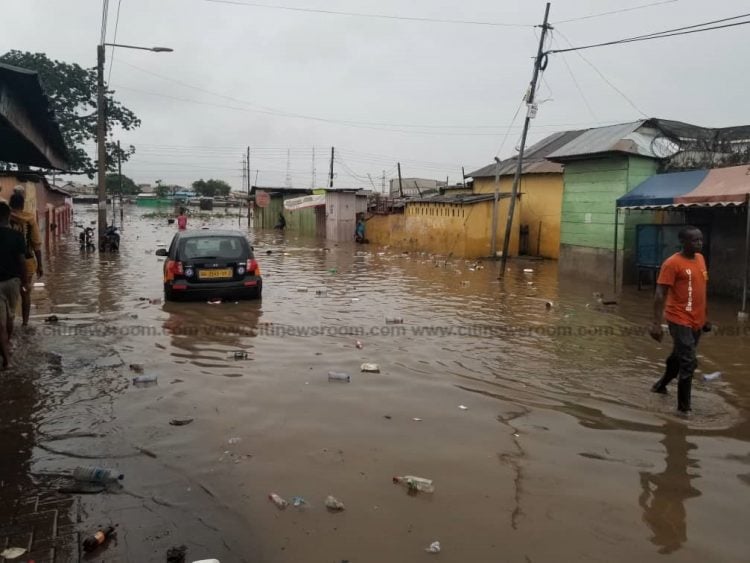The Caucus for Democratic Governance, Ghana (CDG-GH), is deeply concerned about the persistent and destructive flooding in Accra, which continues to claim lives, displace residents, and damage critical infrastructure. We believe that this recurring crisis stems from systemic planning failures, poor drainage engineering, and the absence of a comprehensive hydrological strategy. To address this challenge effectively, we propose the following urgent actions:
*1. Comprehensive Hydrological Study of Accra*
A detailed hydrological and topographical study must be conducted. This study should superimpose Accra’s topological maps with existing structural developments, environmental layouts, road networks, and water bodies (rivers and streams). Overlaying the sizes and flow directions of current drainage systems will reveal inefficiencies—such as uniformly sized gutters built without regard to slope or convergence volume. Best practices require that small drains at higher elevations flow into progressively larger drains downhill, eventually reaching rivers or streams. Current construction practices often ignore this principle, creating ineffective and counterproductive drainage systems.
*2. Drone Mapping and Flood Path Documentation*
Regular aerial surveillance using drones during and after heavy rainfall will provide crucial data on natural flood paths. This evidence-based approach will expose blocked or diverted channels and aid the development of an accurate, functional drainage blueprint for the city.
*3. Critical Review of Road and Highway Drainage Systems*
Many roads, including the motorway, lack drainage at their lowest points, leaving water trapped by road curbs. Worse still, newly constructed bridges and culverts appear inadequate for the expanded 2×4 lane roads. Without proper enlargement of these structures, larger volumes of runoff will overwhelm surrounding communities. It is imperative that new road designs include larger, engineered drainage paths and adequate sub-surface tunnels for utility services such as power and fiber-optic cables.
*4. Development of a Holistic Drainage Masterplan*
Based on the findings from the studies, a comprehensive, city-wide drainage masterplan must be developed. This should identify which rivers and streams require expansion, remove natural and man-made barriers, and ensure efficient flow routes are engineered. Global precedents, like Japan’s successful river diversion to build high-speed rail infrastructure, can offer valuable insights.
*5. Coastal Impact Assessment*
Given Accra’s proximity to the coast, a scientific assessment of sea level variations, tidal cycles, and lunar patterns must be undertaken. These elements influence the rate at which rivers can empty into the sea. If high tides restrict flow, it results in backflow and worsens urban flooding. In such cases, retention systems such as deep in-land dams must be constructed to temporarily hold floodwaters until they can be safely discharged.
*6. National Priority and Engineering Leadership*
This challenge demands urgent national attention and the leadership of Ghana’s best engineers, urban planners, and environmental scientists. A national task force or commission should be constituted to implement this vision with dedication and accountability.
Contributed by:
Leslie Mensah Tamakloe
Signed:
Dr. E.K. Hayford
Executive Director, CDG-GH
Tel: 0277606338


